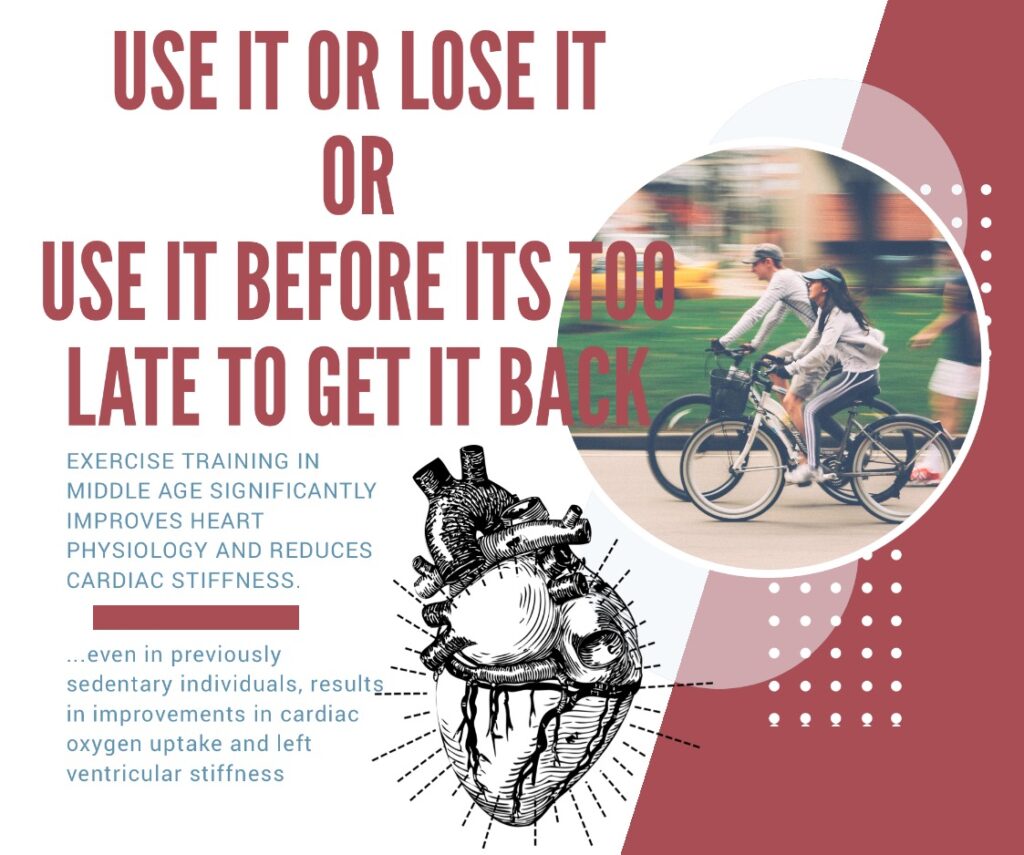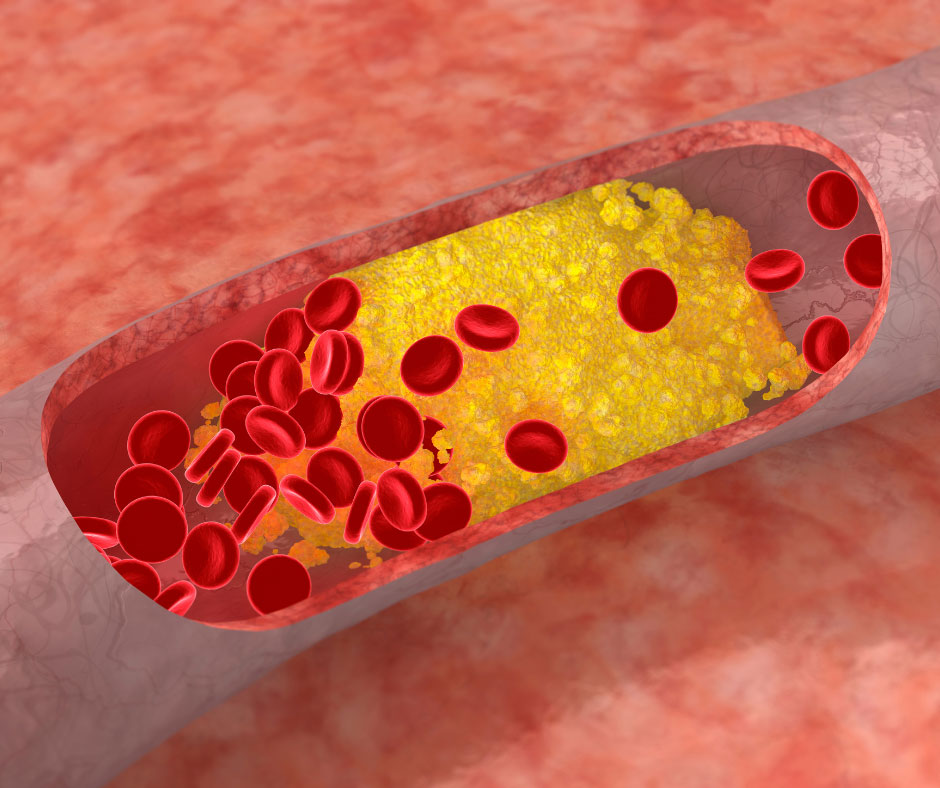As we age, the muscles thicken in the left ventricle of our heart, and our heart stiffens and enlarges slightly. Our arteries become less flexible, and fatty deposits called plaques collect along the artery walls, slowing the blood flow from the heart. This aging progression, along with lifestyle choices, can increase your risk of heart disease. However, a new study has found that you can slow and even reverse this aging process.
Recently, researchers at the University of Texas Southwestern Medical Center conducted a study that investigated the interaction between exercise and aging, and explored the prospect that exercise could restore the heart’s elasticity in previously sedentary, late middle aged individuals. The good news is the study found that exercising 4 – 5 times a week can actually reverse damage to aging hearts, even after a lifetime of inactivity.
In the two year study, the UT Southwestern researchers monitored the hearts of 53 adults, ages 45 to 64, who were healthy, but who did not exercise and who spent most of their day sitting down. The participants in the study were divided into two groups: Half of the participants took part in a regime that included regular aerobic exercises. The regime involved one hour a week of high intensity aerobic exercise such as tennis, cycling, running, dancing or brisk walking, plus one 30 minute session consisting of a high intensity workout, two 30 minute sessions of moderate exercise such as swimming, and 1-2 sessions per week of strength training. The remaining participants were a control group and engaged in yoga and balance training three times a week and did no aerobic activity.
At the end of the two-year study, those who had exercised were not only more fit, their heart showed an 18% improvement in their maximum oxygen intake during exercise and their heart muscle was 25% less stiff, meaning that the heart could pump blood far more efficiently, thus reducing their risk for heart failure. The control group saw no change in their heart health.
While previous studies have shown a clear link between exercise and multiple health benefits, what was surprising to Dr. Benjamin Levine, senior author of the study, was how quickly heart health could be revived with the introduction of exercise, even later in life. “If the goal is to preserve youthful arteries and heart function,” Levine said, “then exercise four to five days a week is what it takes.” Dr. Levine said the results were so ‘extraordinary’ that the regime should be ‘prescribed for life’ and become a daily habit, in the same way as tooth brushing is a daily habit. To reap the most benefit, the exercise regimen should begin by late middle age (before age 65), when the heart still has enough plasticity to repair itself. And the exercise needs to be performed four to five times a week. Two to three times a week was not enough to protect the heart from aging.
Again, the weekly regime includes one hour of high intensity aerobic exercise such as tennis, cycling, running, dancing or brisk walking, one 30 minute session consisting of a high intensity aerobic workout, two 30 minute sessions of moderate exercise such as swimming, and 1-2 sessions per week of strength training. Exercise has been shown to slow the aging process, but it works best in combination with other healthy lifestyle habits. Here are some other tips to keep your heart healthy as you age:
- Avoid tobacco in all its forms.
- Eat properly. Your diet should include lots of fruits, vegetables, whole grains, legumes, nuts and nonfat dairy products. Get about 15% of your calories from lean protein, such as fish and poultry. Cut back on salt, sugar and processed foods and reduce your consumption of saturated fat, trans-fats, and cholesterol. Keep your caloric consumption down and stay as lean as possible.
- If you choose to drink, be responsible. For women, limit yourself to one drink a day, and for men, two drinks a day.
- Keep your mind active and stimulated. Mental exercise is an important complement to physical exercise.
- Build strong social networks. People are good medicine at any age.
- Get regular medical care and monitor your blood pressure and cholesterol.
Exercise is beneficial regardless of the age at which it is started and can help you maintain cardiovascular fitness as well as mental and muscular fitness as you age.
References:











